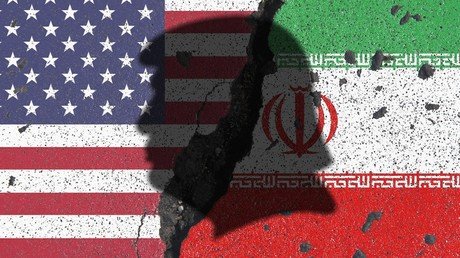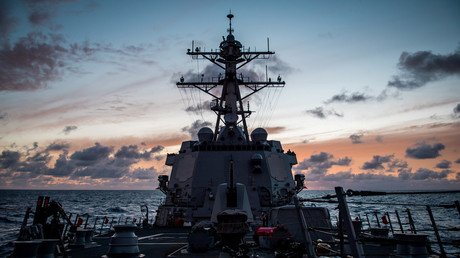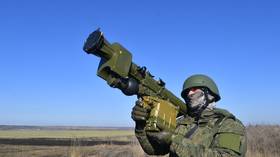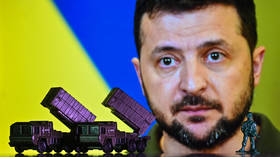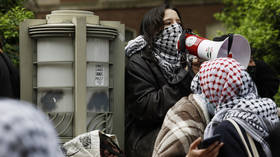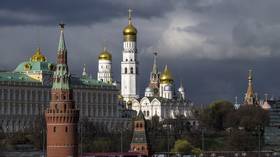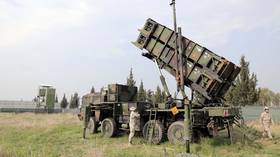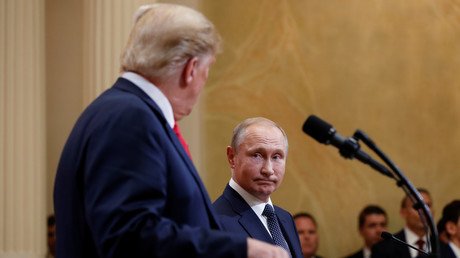Tweet-down to the apocalypse? US recklessness on Iran could trigger 'mother of all wars'
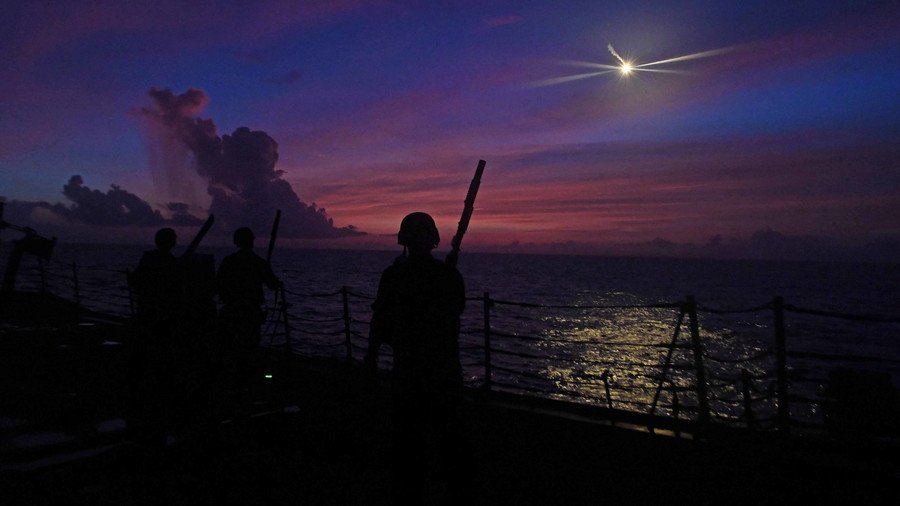
Once again, US foreign diplomacy has boiled down to a series of inflammatory comments via social media, with the US leader this time threatening Iran with "consequences" as talk of sanctions and blockades heats up.
Late on Sunday night, Donald Trump, supreme commander-in-chief of his Twitter feed, launched into the void of darkness a screaming, all-caps invective addressed to Iranian President Hassan Rouhani:
To Iranian President Rouhani: NEVER, EVER THREATEN THE UNITED STATES AGAIN OR YOU WILL SUFFER CONSEQUENCES THE LIKES OF WHICH FEW THROUGHOUT HISTORY HAVE EVER SUFFERED BEFORE. WE ARE NO LONGER A COUNTRY THAT WILL STAND FOR YOUR DEMENTED WORDS OF VIOLENCE & DEATH. BE CAUTIOUS!
— Donald J. Trump (@realDonaldTrump) July 23, 2018
Ah yes, nothing like the sweet sound of calm and composed chatter between bickering state leaders – especially at a time when the world is straddling a nuclear-weapon keg the size of Mount Everest.
Trump's latest over-the-top outburst came in response to a statement by Rouhani, who just the day before was quoted as saying: "The Americans must understand… that peace with Iran is the mother of all peace, and war with Iran is the mother of all wars."
Rouhani, a moderate, progressive-minded politician who enjoys robust support at home, as well as respect on the international stage, went on to say that the Islamic Republic "will certainly defeat America" because ongoing threats against the Iranian people will "only serve to unite them."
Considered in its entirety, the comment sounds less like a "threat" aimed at the United States, as Donald Trump seems to have interpreted it, and more of a reminder as to what a full-blown military conflict between the US and Iran – a showdown that would pull other serious players into the fray - would look like. Indeed, in the event of such a scenario, the world should expect nothing short of World War III, or the war to end all wars, at least for a very long time. That is why we need to hear more such "threats," not less, if the human race is to avoid a global conflagration that could wipe out life on the planet as we know it. But I digress.
The inflammatory rhetoric between Washington and Tehran has been escalating ever since Trump withdrew the US from the Joint Comprehensive Plan of Action (JCPOA) in May. The Obama-era deal, which obliged Tehran to give up 98 percent of its enriched uranium, while keeping the remainder far below enrichment levels, gave Iran much-needed relief from UN-imposed sanctions. Although the International Atomic Energy Agency (IAEA) has certified Iran's full compliance with the conditions of the agreement – signed by Iran and the five permanent UN Security Council members (Russia, China, the US, UK, France) and Germany – Trump has slammed it as "one the worst deals ever."
Now the US president is expecting America's increasingly irritated European allies to support US-led sanctions against Iranian oil supplies, or risk the possibility of being sanctioned themselves by Washington. The question remains as to how long such a double-edged foreign policy agenda, that hurts allies and enemies alike, can continue.
Where's the diplomacy?
There is a temptation to say that Trump's Twitter tirade against Tehran is symptomatic of the domestic political crisis that has gripped the United States ever since Trump entered the Oval Office. Indeed, the US leader's explosive tweet on Iran is sandwiched in between a long string of tweets dealing with Russiagate, the FBI investigation that won't go away. Just hours before the post on Iran, Trump tweeted out in palpable frustration: "So President Obama knew about Russia before the Election. Why didn't he do something about it? Why didn't he tell our campaign? Because it is all a big hoax, that's why, and he thought Crooked Hillary was going to win!!!"
So President Obama knew about Russia before the Election. Why didn’t he do something about it? Why didn’t he tell our campaign? Because it is all a big hoax, that’s why, and he thought Crooked Hillary was going to win!!!
— Donald J. Trump (@realDonaldTrump) July 22, 2018
In any event, Tehran has found itself in Washington's crosshairs ever since Trump came to power and the actions go beyond the rhetorical.
This week, the Trump administration, in addition to the imposition of "severe" sanctions against the Islamic State, launched "an offensive of speeches and online communications meant to foment unrest and… its support of militant groups," Reuters reported, quoting anonymous US officials. Part of the campaign's message is being disseminated by a US government-owned website, Share America, which is designed as a platform "to spark debate on democracy and other issues" in places like Iran.
Over the weekend, US Secretary of State Mike Pompeo announced the launch of a 24/7 Farsi-language channel that would reach people in Iran through a variety of media, including on television, radio, digital format and social media. Pompeo vowed the channel would provide an outlet to "the long-ignored voice of the Iranian people." It is hard to imagine a level of meddling more invasive than that anywhere in the world.
But the story gets better. Reuters, quoting sources, admitted that the information the administration has chosen to publish on the Iranian government is "incomplete or distorted." In other words, the administration is unabashedly employing raw propaganda techniques against Iran in an effort to topple "the regime."
Such comments by high-level US officials are designed to spread dissent and agitate Iranian opposition groups that may be responsive to such a message. In other words, the US – although it stubbornly denies the claim – is interested in bringing about regime change in Iran, much like it unapologetically did in other broken places, like Iraq and Libya. Syria, meanwhile, seems to have escaped such a cruel fate by the skin of its teeth, although it may be too early to cast judgment just yet.
Needless to say, actions on the part of the Trump administration are not occurring in a political vacuum; Iran is responding to the increasingly hawkish behavior coming from Washington.
Over the weekend, Tehran warned, yet again, that it may block oil tankers from using the Strait of Hormuz in response to the imposition of US sanctions.
Iran's Supreme Leader Ayatollah Ali Khamenei supported Rouhani's comments, saying: 'If Iran's oil is not exported, no regional country's oil will be exported.' If such a stand-off should occur, we will be witnessing far more than just Twitter outbursts over our morning coffee.
Once again, the world is being dragged helplessly to the precipice of a serious conflict, and one that appeared to have been resolved just one year earlier. The Trump administration seems to believe that arm-twisting its perceived enemies to its political will is the best way to resolve disagreements. Although that technique may have worked in North Korea, it remains doubtful that such a high-stakes game will work with Iran. What we are witnessing is a dangerous game of poker where the stakes are no less than the survival of the planet itself. Such a scenario deserves cool diplomacy between heads of state, not late-night tantrum outbursts via Twitter.
The statements, views and opinions expressed in this column are solely those of the author and do not necessarily represent those of RT.

